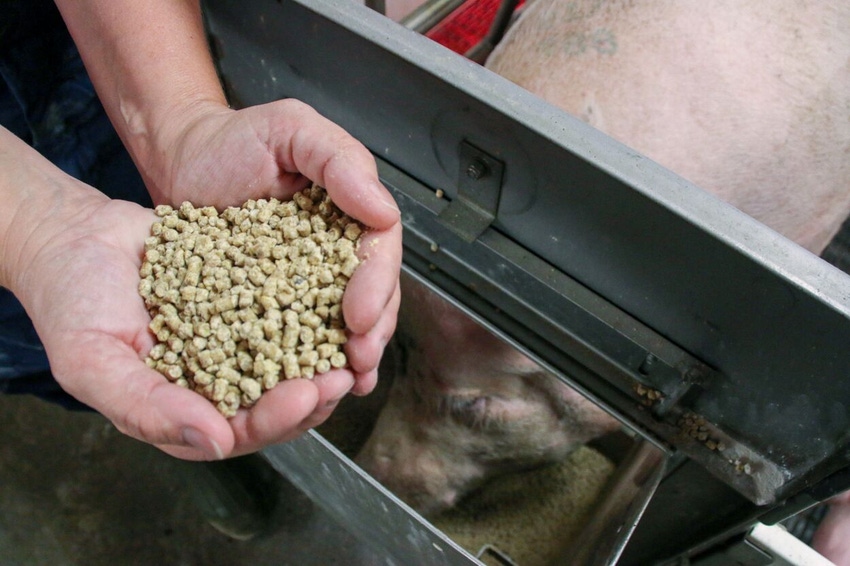K-State works to update vitamin, trace mineral levels for swine diets
Faccin's work concluded that compared to most recent NRC data, most respondents use higher levels of vitamins, trace minerals in all production phases.
October 17, 2022

A Kansas State University postdoctoral student is conducting research to update the swine industry's production standards, a project he said will aid producers in formulating pig diet formulation and safety.
Jamil Faccin, a veterinarian and researcher in K-State's Department of Animal Sciences and Industry, said it has been 10 years since the National Research Council published guidelines for vitamin and trace mineral levels used in swine production, and six years since the last U.S. survey was conducted.
In 2018, vitamin shortages in swine production resulted in the recommended rates for including vitamins being reduced. Faccin said it remains unclear if the rates were ever increased after the shortage.
"From November 2021 to February 2022, we surveyed 37 swine nutritionists representing 29 production systems and eight nutrition supplier companies in the United States about added vitamins and trace mineral concentrations in swine diets," Faccin said. "They were asked to provide vitamin and trace mineral inclusion rates, weight ranges associated with each dietary phase, and the number of sows utilizing their nutritional recommendations."
Faccin found considerable variation between responses and attributed this to variables such as herd health, vitamin and mineral sources, diet formulation and margin-of-safety mindset.
The margin of safety, he said, is when producers add more than the NRC recommendation because of outdated nutrient studies, condition of storage decreasing stability of the nutrients, and low cost.
Faccin's work concluded that compared to the most recent NRC data, most respondents use higher levels of vitamins and trace minerals in all production phases (nursery, grow-finishing and breeding) as well as an increase of chelated and organic sources.
"Producers can use the updated information as a benchmark," Faccin said. "They can observe how close to the average, minimum and maximum they are for every single vitamin or trace mineral in all production phases."
While vitamins and trace minerals are a smaller portion of the feed costs, they are important to swine health, growth and metabolic function, Faccin said.
"We need to focus on new research with the actual production standards to be more precise when adding vitamins and trace minerals to pig diets," he said.
More information on Faccin's research will be presented at Kansas State University's Swine Day, set for Nov. 17 at the K-State Alumni Center. Registration for that event is now open and costs $25 for those who sign up by Nov. 10; the cost on the day of the event is $50. For more information, contact Lois Schreiner at 785-532-1267 or via email.
Source: Kansas State University Research and Extension, which is solely responsible for the information provided, and wholly owns the information. Informa Business Media and all its subsidiaries are not responsible for any of the content contained in this information asset.
You May Also Like



